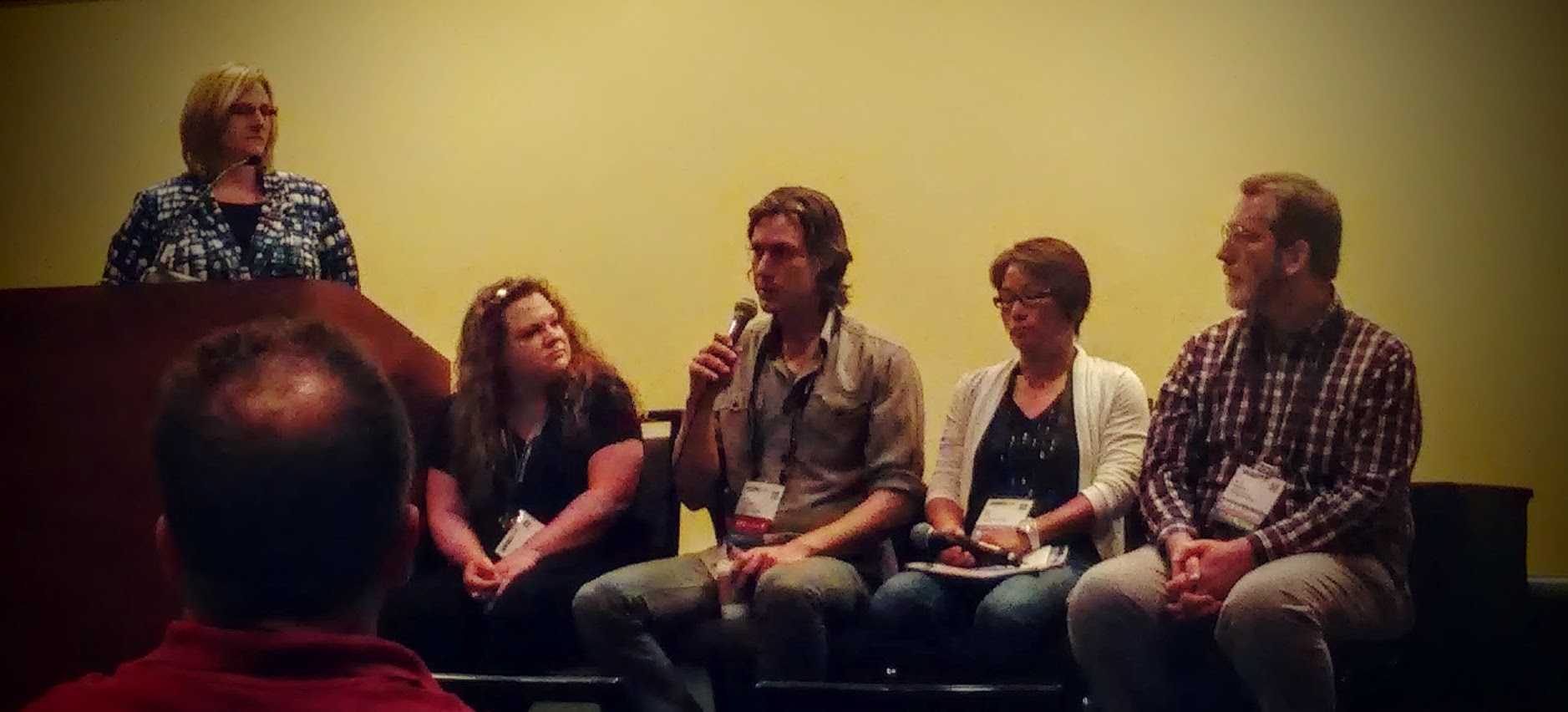Career transition - from academia to industry
Live blogging from conference
Ph. D. and what after? Do you know?
For most of us, a natural choice after completing a science masters is a research career. The path is clear: a Ph.D., followed perhaps by an international postdoc and then a faculty position, and you become a PI or a Professor. However, some of us (including me) at different stages of this long path are asking ourselves a question: do I really fit here? At this point, some people may choose to abandon research for non-research work they may find more fulfilling, better-paid, more entertaining or less stressful. These people may make the transition into science liaison, editor, consultant or project manager positions. Others may find happiness in continuing with research, but in industry setting.
From two Birds of Flight sessions: Student Council Career Central and Navigating the Industry Career Path at ISMB 2016, I have compiled various testimonies about doing research in industry and some tips for applicants seeking out those positions.

In brief, the difference between industry and academia is :
Academia: how can I generate new informantion that will improve world knowledge? Personal career is often ahead of the main goal.
Industry: There is a specific problem we need to try to solve as quickly as we can working as a team
Main differences between working in industry and in academia:
- faster peace — This can be a plus (stimulating) or a minus (stressful) depending on your working style or personal preference.
- real deadlines — A lot of money can be invested in projects you are part of and so there is pressure to achieve goals or abandon projects where necessary
- constructive feedback — For example, at the end of the year the Amyris company gives employees feedback on different competences. This is based on what is collected from their co-workers and project leaders, and can include evaluations on communication (written and oral), individual performance , performance in the team, leadership skills, etc.
- improve your skills with the aid of the company- i.e. Your oral presentation may be recorded and commented in detail to help you overcome your weak points
- your manager is not a PI - Your relationships within the working environment will therefore be different
- less competition, more collaboration between research groups within the company
- working hours — Within industry employees can be expensive: you need to learn to be very efficient during your allocated working hours
- put aside your ego — Being capable of working well within a team is crucial, no one wants to work with a super-star
- you don’t need to raise money — there is typically a whole department that takes care of this, you are free to focus on research
- less freedom on your research and goals - as the topic of your research and goals are typically led by the company
- you may still be able to publish research, but it is not a high priority like in Academia - Lawyers may decide what you can actually make public
- you can and you should still network with researchers - Probably your ex-fellows
- you can collaborate with academic labs
- your creation belongs to the company — No fights to have your name on the paper, but on the other hand, you do not get credit in the traditional sense
- your work and the company can be motivated by money

Some tips for the job search and interview process
Key tips
Team work, team work, team work.
Industry is probably not suited to individuals who would prefer to work alone.
According to Nicole Bodycombe, technical skills are not the most important point of your dossier because she argues that everyone can be trained. What is much more important is the ability to communicate with coworkers and community and also problem solve.
Interview process
Different stages can be applied: CV screening — make sure it stands out for example including recommendation letter from some in the company, phone screening, group lunch (evaluate your social skills), pairing, a task/ exercise / problem to solve (result is not the most important the process of searching for an answer is)
Do your homework before the interview: see products, related publications, try to get in contact with someone in the company through your network to learn about company habits, goals and ambiance.
Use interview to learn more about the company. What is the working environment like? What kind of vocabulary do they use? Always ask questions!
You can read testimonies from applicants who have interviewed for different companies online in websites as https://www.glassdoor.fr.
Your role in the industry
For a computational biologist different roles are possible: data analyst, software engineer (producing tools), project-shaping. Along with many others! Sometimes you can negotiate with the company about your role, but try to flexible and open into new opportunities.
How to network?
Most of people you know may stay in academia. It is likely that your PI will be able to offer you more advice on continuing your career is academia than they would be able to about pursuing one in industry. So how can you meet people from the big world outside of academia? Look among your colleagues, it is likely that there is someone who has at least collaborated with industry partners. You can also use Linkedin to find more people working within industry. Reach out to people and go to local meet ups. Be curious and proactive.
PostDoc or not?
For those who are debating between getting more experience in research before transitioning into industry or moving straight across, the answer is: it depends. For more skill based positions like data analysts or developers it is not necessary to have an extensive research background. However if you wish to lead a research group in industry it can be an asset to have progressed further in academia.
Important remark: If you are not U.S. resident looking to land an industry job in U.S., it may be better for you to do a postdoc first for practical reasons. Getting a working visa from a distance can be a long and difficult process and having a research position can make it easier.
What if I want to go back to academia?
Well, it may be challenging but certainly not impossible. Prof. Judith Blake made it. The key is to keep contact with academiaby attending conferences and keeping up to date with new research. However, it may be more challenging to obtain positions that look at your impact factor.
To sum up, in order to succeed in securing jobs in academia, (according to our experts) you should do the following:
be open to opportunities and enjoy yourself

The experts that contributed the testimonials that make up the basis for this post were: Dr. Amoolya Singh (Amyrisc Inc), Dr. Sarah Teichmann (Group Leader at EBI), Prof. Judith Blake (Jaxon Laboratories, previous: The Smithsonian Institution), Mrs. Nicole Bodycombe (Pfizer), Dr. Blake Borgeson (RECURSION Pharmaceuticals), Dr. Lan Hu (Bio-Rad Laboratories)and Dr. Scott Markel (BIOVIA). All of the above (except Dr. Sarah Teichmann) were or are working an industry setting with research being a key component of what they do.
Some of them chose to leave academia because of personal situations, working hours (industry jobs can sometimes be less time-consuming) or in an effort to have a better work-life balance. Their testimonies highlight that there are many varied and exciting opportunities within industry.
Closing remarks
Personally, as I strongly consider working in industry later on in my life.Even though these testimonies are somewhat limited in the sense that this is only a snapshot of some people’s experience, they give an idea about the industry sector’s expectations and the benefits of working there.
Sadly there is no magic recipe for choosing between academia and industry. Finding the right job is like buying shoes. Some are exactly the right fit and some you may need to adjust a bit. The key is to try as many as possible and to be well-prepared. Thanks to an increasing number of career development sessions at scientific conferences, more people will be able to explore their options and contribute to research in the best way they can — be that working in academia or in industry.
I wish you all best of luck with your career!

Disclaimer: Any views expressed are those of the author, not necessarily those of PLOS.